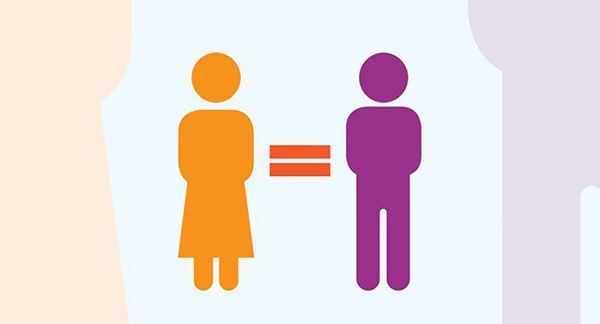
The Gender Barometer is the first comprehensive study in Moldova that addresses women's and men's involvement in politics and decision-making. The study was aimed to elucidate gender-specific challenges in politics and the decision making process. Conclusions from the Gender Barometer are based on the achievement of three researches targeting voters, local female and male candidates and elected representatives.
Perceptions of Traditional Gender Roles
During the last ten years, the perceptions of traditional gender roles have not improved significantly. In 2016, 64% of respondents agreed that man is the one who must earn money and the woman must take care of family and run the home.
Perceptions of women’s participation in politics and decision-making developed considerably. In 2016, about 72% of respondents consider that does not matter the gender of the person in charge of public administration, politics or work, increasing by 11 percentage points compared to 2006.
Participation in Local Decision-Making
About 5.6% of male respondents say they are members or active participants in political parties, compared to 3.2% of female. At the same time, 4.6% of female respondents participate in the NGOs activity compared to 2.4% of male respondents.
In the communities with a female mayor, the level of confidence is of 34%, compared to 6% in communities with a male mayor, and the participation rate in developing community projects in the localities led by men was of 4.6%, while the rate in communities led by women was of 9.6%.
Political Participation of Men and Women
The more important the political function, the higher the respondents’ preference for a man is. Almost 10.8% of respondents prefer a man as the chair of parents’ committee in school (31.6% would prefer a woman). 17.8% of respondents would prefer a man as the school principal, and 23.5% – a woman. Usually, the position of mayor is associated with a man (33.2% plead for a man and only 11.7% would accept a woman). The biggest difference was registered for the President of the country – 40.5% of respondents would prefer a man for this position and only 7.6% – a woman. One of two women running for elections in 2015 came from the educational sector, one of ten from the health sector and 13% – from the trade sector. This focus on areas is less pronounced in the case of male candidates – 25% came from agricultural sector, 19% from trade sector and only 18% from the educational sector. Political party is the main actor determining the decision to stand as a candidate. Most candidates (74%) for the 2015 local elections, both men and women, represented the parties to which they belong.
Prospects of Local Elected Representatives
Priorities of local elected representatives vary to a certain extent depending on their gender. Although, per total, the main issues are addressed similarly, women register different results due to the fact that they target aspects related to the educational institutions, care services for little children (54.8% compared to 39.8% in case of men), and environment to a higher extent than men. Men focused particularly on water supply infrastructure and cultural/community institutions. Women in local leading positions draw more on community projects, while men – on the support of Government institutions. Women differ from men by the fact that, while they seek support (including financial) for community projects, they tend to rely more than men on the local capacities/resources (40.9% versus 34.6%). Another specific aspect for women is the fact that they seek support beyond the State budget. Compared to men, women apply more often for external funding, e.g. specific funding offers, funds of international bodies and civil society. Men maintain the ‘traditional’ approaches, preferring to seek support at district or national Government institutions or to make use of party membership. Respondents say that political factor is the most important element in granting support to the local elected representatives by the Government.
Research was conducted under ‘Women in Politics’ UN Programme. This Programme is implemented by the United Nations Entity for Gender Equality and the Empowerment of Women (UN Women), United Nations Development Programme (UNDP) in partnership with East Europe Foundation and ‘Partnership for Development’ Center with financial support from the Swedish Government.The survey was conducted by the Centre for Sociological Investigations and Marketing ‘CBS-AXA’.